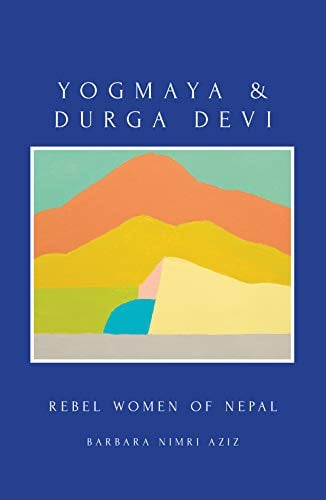Do Meghan and Harry Really Believe They Control the Narrative?

All Global Research articles can be read in 51 languages by activating the Translate Website button below the author’s name.
To receive Global Research’s Daily Newsletter (selected articles), click here.
Follow us on Instagram and Twitter and subscribe to our Telegram Channel. Feel free to repost and share widely Global Research articles.
***
My sister in Canada once had an ardent although not excessive interest in British royalty. She’s followed successive generations of The Windsors from the 1940s into the 21st Century. Now, she says, that’s over. First she refused to indulge the latest ‘Crown’ film series; now she’s determinedly ignoring the newest BritRoyal wrangles and confessions displayed on Netflix’s ‘Harry and Meghan’ run.
I’m joining the boycott. Not because I might not sympathize with a young couple’s reported difficulties with their family. But because they have taken on a narrative that they cannot possibly control, one that simply provides a captivated public with a new chapter in an endless loop; it’s unarguably mere entertainment. So, are they exploiting the family name? Or is the media machine exploiting them?
However savvy the exiled young family may appear, however trusted the advisors who arrange their appearances, however candid, perceptive and valid their interpretations of BritRoyal life, do they really believe their story can rise beyond a quotidian media event to feed the public’s insatiable mythomania?
I admit I found some of the stories presently circulating irresistible: ‘The Crown’ drama and the countless documentaries about the doomed and adored Diana: cheated wife, cool mother, pitiable sister, shunned daughter-in-law, public martyr. All are supplemented with film forays through the Windsor family tree, each limb with its jealousies, intrigues and mysteries: the royal sisters, Margaret and Elizabeth; a new Channel 4 British production ‘Prince Andrew: The Musical’; the exiled recluse, Princess Alice of Battenberg, mother of the Duke of Edinburgh. Royal historians proffer appropriate dignity and authority while doddering cousins, eyewitnesses to the royals as adorable infants, are pulled from retirement to add a kinder touch.
Controversies from the 2021 Oprah TV interview highlighting the problems of the likable scion Harry and his American wife Meghan were preempted by June’s week-long spectacle, the funerary ritual of Elizabeth II. But the current docuseries, with its added layer of Sussex-Windsor confessions, must have been underway before the matriarch’s royal body was cold. As if Harry’s and Meghan’s tattling would not create a backlash, this week we have Harry offering a footnote for the public to chew on.
I’m inclined to concur with my sister’s decision to dismiss further portrayals of BritRoyals. Whatever insights they may offer about dysfunctional family realities and the plague of press attention they suffer, there’s no definitive truth here, certainly no winner. Whichever side we may come down on after hearing revelations by the Duke and Duchess, all this is a sort of pulp biopic.
This enchanting couple has succumbed to a powerful drug—celebrity. They may win sympathy; they may fill their de-royaled coffer (reputedly $100 M for the series); they may feel vindicated. But they’re no more than itinerant celebrity entertainers.
Wasn’t Harry’s mother Diana, whose victimization he himself invokes, a casualty of press obsession with celebrity? Not only was the ‘People’s Princess’ doomed; she fell victim to the myth that she might set the record straight. Perhaps she believed that the adoration showered on her would affirm the inviolability of her truth. Harry, like Diana, is turning to that same media monster, perhaps believing it’s the court of true justice. And like Diana, he may be entangled in a web where it’s hard to distinguish clash from collusion. He may never resurface.
Remember Diana’s cunningly-arranged 1995 BBC interview? She was lured into that after she’d been maneuvered to provide the text for Diana: Her True Story — the in-her-own-words book by Andrew Morton. Now Harry, insisting his mother’s woeful history will not be repeated, is about to release his ‘raw, unflinching’ (to use the book’s promotional blurb) memoir, Spare.
Great British authors, from Shakespeare to Hilary Mantel, have created complex, engaging, irresistible portraits of the British aristocracy and monarchy for public consumption. Their plots and characters derive from royal competitions and jealousies, family rivalries, church and state intrigue, misogyny and sedition, mental illness, betrayal, racism, abuse, thwarted ambitions and false claimants. The British House of Windsor provides today’s creative minds with abundant material for our binge-watching and tabloid journalism. Doubtless, novels and plays will follow.
The unfortunate aspect of the current brouhaha created by Harry and Meghan is that as exiled-royals they have joined the media business—Meghan’s pre-royal life was in TV drama; she now hosts a podcast. Yet it appears she and her husband fail to understand that the business is so much bigger than them.
We wait for a wise counselor to bring them up to speed on the vagaries of digital data, polarization of news reporting, the business of media criticism and the genre of fact-checking.
And what about their American children and those young royal cousins across the pond?
*
Note to readers: Please click the share buttons above. Follow us on Instagram and Twitter and subscribe to our Telegram Channel. Feel free to repost and share widely Global Research articles.
Barbara Nimri Aziz whose anthropological research has focused on the peoples of the Himalayas is the author of the newly published “Yogmaya and Durga Devi: Rebel Women of Nepal”, available on Amazon.
She is a regular contributor to Global Research.
“Yogmaya and Durga Devi: Rebel Women of Nepal”
By Barbara Nimri Aziz
A century ago Yogmaya and Durga Devi, two women champions of justice, emerged from a remote corner of rural Nepal to offer solutions to their nation’s social and political ills. Then they were forgotten.
Years after their demise, in 1980 veteran anthropologist Barbara Nimri Aziz first uncovered their suppressed histories in her comprehensive and accessible biographies. Revelations from her decade of research led to the resurrection of these women and their entry into contemporary Nepali consciousness.
This book captures the daring political campaigns of these rebel women; at the same time it asks us to acknowledge their impact on contemporary feminist thinking. Like many revolutionaries who were vilified in their lifetimes, we learn about the true nature of these leaders’ intelligence, sacrifices, and vision during an era of social and economic oppression in this part of Asia.
After Nepal moved from absolute monarchy to a fledgling democracy and history re-evaluated these pioneers, Dr. Aziz explores their legacies in this book.
Psychologically provocative and astonishingly moving, “Yogmaya and Durga Devi” is a seminal contribution to women’s history.



